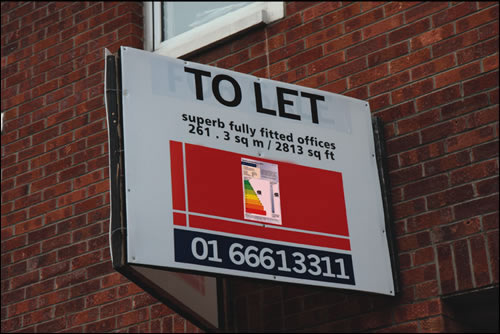- Government
- Posted
Construct Ireland policies in programme for government
 Construct Ireland’s recent lobbying and campaigning work has paid off spectacularly with news that two policy proposals have been adopted into the reneweed programme for government .
Construct Ireland’s recent lobbying and campaigning work has paid off spectacularly with news that two policy proposals have been adopted into the reneweed programme for government .Editor Jeff Colley made detailed submissions to the Green Party on several issues, with proposals for a pay as you save policy to stimulate national energy upgrade work and a policy to dramatically increase the impact of Building Energy Ratings finding their way into the document agreed between Fianna Fáil and the Greens.
 Construct Ireland’s recent lobbying and campaigning work has paid off spectacularly with news that two policy proposals have been adopted into the renewed programme for government .
Construct Ireland’s recent lobbying and campaigning work has paid off spectacularly with news that two policy proposals have been adopted into the renewed programme for government .Editor Jeff Colley made detailed submissions to the Green Party on several issues, with proposals for a pay as you save policy to stimulate national energy upgrade work and a policy to dramatically increase the impact of Building Energy Ratings finding their way into the document agreed between Fianna Fáil and the Greens.
In a word-for-word replication of Colley’s submission to the Green Party, page 29 of the renewed programme states: "We will raise awareness of Building Energy Ratings (BER), by making it mandatory to display BERs wherever a property is advertised for sale or to let, including signage and printed/online advertising."
Construct Ireland explained the benefits of this proposal in a detailed article in May this year, including greater public awareness of both BER and the relatively poor state of Ireland’s housing stock, and the prospect of near-perfect compliance with the requirement for BER when properties are sold or rented – the logic being that the requirement to display BERs on signage and advertising would draw immediate attention to non-compliant properties.
Following a detailed submission from Colley on pay as you save – a system where energy utilities recoup the cost of financing energy efficiency measures through the energy bills of the building in question – the programme commits to a renamed version of such an approach, stating: “We will introduce new energy demand reduction targets for energy utilities, thus allowing the customer to ‘save as they pay’ through energy efficient measures."
Speaking to Construct Ireland, energy minister Eamon Ryan confirmed that this represents a commitment to utilities offering on-bill finance for energy upgrades. “We need to be upgrading hundreds of thousands of buildings and that's the way you can do it,” he said. “The utilities are interested and committed. The institutions from SEI to my own department are committed, and I think then it's just a matter of creating the right technical and legal conditions.
The minister said that this model should be implemented urgently given the employment opportunities it could create. “ I'm confident we can have this ready to go some time next year,” he said. “I don't think it should be any longer than that. We're already starting to see the benefits of the Home Energy Saving scheme in terms of creating jobs.”
The programme also states that AIB and Bank of Ireland will put together a €200m green fund to both enable new energy service companies to install energy saving equipment into public buildings and supplement SEI’s grant schemes for energy upgrading homes and businesses. “We’ll use bank lending committed to green projects, particularly for public buildings and commercial buildings”, the minister said, “where the bank provides a lending mechanism to provide the capital costs for the work. Payment of the loan would be over five to seven years.
“Secondly, with residential and small commercial buildings the billing mechanism allows people to carry out retrofit work which enables them to pay for the work from the savings that are made. The domestic part forms a part of the EDRT (the Department of Energy’s proposed Energy Demand Reduction Target programme)."
The minister emphasized two key means of addressing rental property through pay as you save – as the repayment obligation stays with the building once the occupant moves out, and the customer should see immediate reductions in their energy bill, with the extra cost of capital repayments offset by reduced energy spend. “That's an area where we think it [pay as you save] has particular application,” he said. “As part of our fuel strategy it has to work for people who are renting.”
In a statement the BER Assessors Association of Ireland said that the group “welcomes the inclusion of mandatory display of BER Ratings on properties for sale. This can only be a success if the resources are made available to building control officers in each of the local authorities,” it said. “The current situation where only 5 per cent of properties offered for sale or rent actually have a BER shows that the commitment was not there when the BER scheme was initially launched.
“The ‘save as you pay’ system is also to be commended but will need careful planning to ensure that the provision of one stop shops by state bodies such as ESB and Bord Gáis do not influence the recommendations made by BER assessors and are totally independent at all times. The BER Assessors Association will seek to have the independence of assessors enshrined in such legislation so as to protect the integrity of independent assessors.”
Last modified on Wednesday, 28 October 2009 12:28

